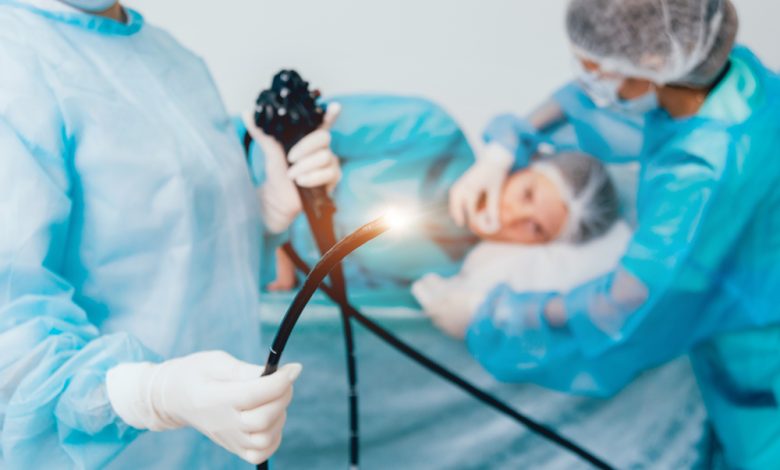The Importance of Endoscopy in Gastroenterology: A Focus on London

Endoscopy is a vital procedure in the field of gastroenterology, offering a minimally invasive method to diagnose and treat a variety of digestive disorders. In a bustling city like London, access to advanced medical care is crucial for maintaining public health. This article explores the role of endoscopy, its applications, and the importance of expert care, particularly highlighting the services provided by renowned London gastroenterologists such as those at London Gastrointestinal Associates.
Understanding Endoscopy
Endoscopy involves the use of an endoscope—a flexible tube with a light and camera attached—to examine the interior surfaces of the digestive tract. This allows doctors to visualize areas that are otherwise inaccessible, aiding in both diagnosis and treatment. The procedure can be applied to different parts of the digestive system, including the esophagus, stomach, small intestine, and colon.
Types of Endoscopy
- Gastroscopy (Upper Endoscopy): This type examines the esophagus, stomach, and duodenum. It is commonly used to investigate symptoms such as heartburn, nausea, vomiting, and upper abdominal pain.
- Colonoscopy: This endoscopic examination of the colon and rectum is essential for colorectal cancer screening, investigating chronic diarrhea or constipation, and diagnosing inflammatory bowel disease (IBD).
- Capsule Endoscopy: Here, the patient swallows a small, pill-sized camera that captures images of the digestive tract, especially useful for examining the small intestine.
- Endoscopic Ultrasound (EUS): This combines endoscopy and ultrasound to get detailed images of the digestive tract and surrounding tissues and organs.
Applications in Gastroenterology
Endoscopy is indispensable for various applications in gastroenterology:
- Diagnosis: It helps diagnose conditions such as ulcers, celiac disease, Crohn’s disease, and gastrointestinal cancers by allowing direct visualization and biopsy.
- Treatment: Therapeutic endoscopy can remove polyps, control bleeding, dilate strictures, and extract foreign objects.
- Monitoring: Regular endoscopic examinations are crucial for chronic conditions like Barrett’s esophagus or IBD to monitor disease progression and adjust treatment plans.
Preparation and Procedure
Preparation for endoscopy typically involves fasting, and specific instructions vary based on the type of endoscopy. For example, colonoscopy requires bowel preparation to clear the colon. During the procedure, the endoscope is carefully navigated through the digestive tract, and the doctor can perform biopsies or treatments as needed. Most endoscopies are performed under sedation to ensure patient comfort, and patients can usually go home the same day.
Benefits of Endoscopy
The benefits of endoscopy are significant:
- Minimally Invasive: Compared to traditional surgery, endoscopy is less invasive, leading to quicker recovery and fewer complications.
- Accurate Diagnosis: Direct visualization and the ability to perform biopsies provide timely and precise diagnoses.
- Early Detection: Particularly in cancer screening, endoscopy can detect abnormalities early, improving treatment outcomes.
Endoscopy in London
In a dynamic city like London, access to high-quality medical services is essential. The city’s healthcare infrastructure includes some of the best facilities and specialists in the world. Endoscopy services in London are highly advanced, incorporating the latest technologies and techniques to ensure optimal patient care.
Among the leading providers, London Gastrointestinal Associates stand out for their comprehensive and expert endoscopic services. These London gastroenterologists offer state-of-the-art diagnostic and therapeutic endoscopy, ensuring patients receive the highest standard of care. Their expertise in managing complex gastrointestinal conditions through endoscopy is unparalleled, making them a preferred choice for many.
Conclusion
Endoscopy plays a crucial role in gastroenterology, providing a minimally invasive way to diagnose and treat various digestive disorders. In London, where access to top-tier medical care is a priority, the importance of skilled endoscopists cannot be overstated. London Gastrointestinal Associates exemplify the excellence in endoscopic services available in the city, offering patients precise and effective diagnostic and treatment options. Understanding the role and benefits of endoscopy helps patients appreciate this vital tool in maintaining their digestive health and underscores the importance of seeking expert care in managing gastrointestinal issues.





